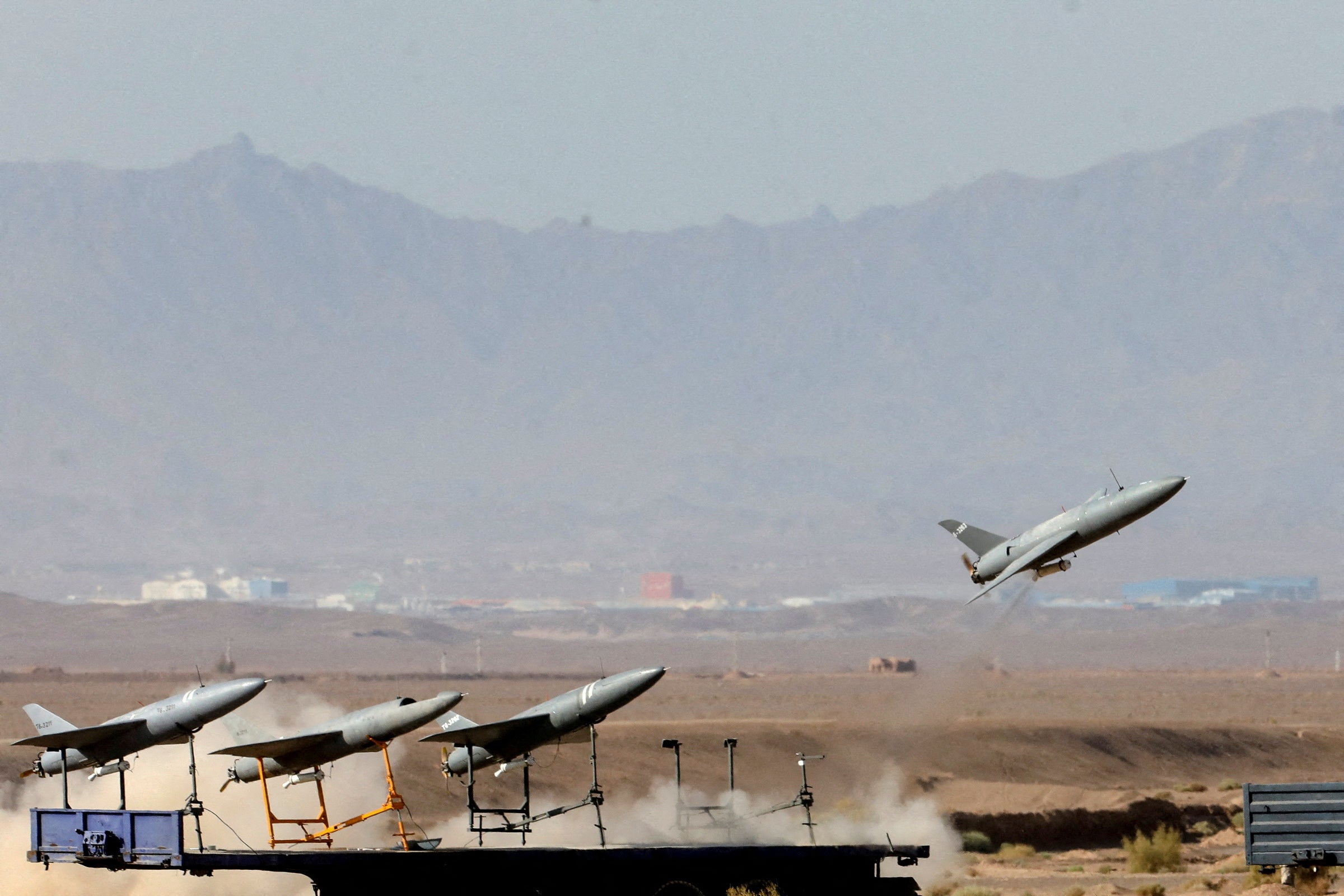Amidst the ongoing conflict in Ukraine, Russia and Iran have deepened their military cooperation, including the construction of a new plant in Russia dedicated to the production of Iranian drones. This development has raised concerns among Western officials and analysts, as it could potentially enhance Iran's military capabilities and further destabilize the region.
According to intelligence reports, the plant is being built in the city of Yelabuga, in the Republic of Tatarstan, Russia. The facility is expected to produce various types of drones, including the Shahed-136, a small, disposable drone used by Iran in recent attacks on Ukrainian targets.
Russia's decision to collaborate with Iran on drone production is likely driven by several factors. Firstly, the war in Ukraine has exposed weaknesses in Russia's military capabilities, particularly in terms of unmanned aerial vehicles (UAVs). By partnering with Iran, Russia can rapidly acquire a large number of drones without the need for extensive research and development.
Secondly, Russia's access to Iranian drones could help offset sanctions imposed by Western countries. The sanctions have restricted Russia's ability to import advanced military equipment, including drones, from Europe and the United States.
For Iran, the partnership with Russia provides an opportunity to expand its military influence and demonstrate its technological prowess. By establishing a production plant in Russia, Iran can gain valuable experience in large-scale drone manufacturing and potentially export its drones to other countries.
Additionally, Iran may view the partnership as a way to counter Western pressure and sanctions. By aligning with Russia, Iran can signal its willingness to defy international norms and develop its military capabilities despite international disapproval.
The construction of the drone plant has sparked concerns among Western officials and analysts. They argue that it could significantly enhance Iran's military capabilities and prolong the war in Ukraine. The Shahed-136 drone, in particular, is known for its low cost and ability to evade air defenses.
Furthermore, Western officials fear that the drones could be used for attacks against Western targets or by terrorist groups. The transfer of drones from Iran to Russia could also violate UN Security Council resolutions that prohibit Iran from selling or transferring certain types of weapons.
Russian Perspective: Russian officials have defended the partnership with Iran, arguing that it is a necessary response to Western sanctions and that the drones will be used exclusively for defensive purposes in Ukraine.
Iranian Perspective: Iranian officials have also justified the partnership, stating that it is a legitimate form of military cooperation and that the drones are for defensive purposes only.
Western Perspective: Western officials have expressed concerns about the potential proliferation of Iranian drones and the risk of escalation in the conflict in Ukraine.
The construction of the drone plant in Russia is a significant development that has raised concerns among Western officials and analysts. It highlights the deepening military cooperation between Russia and Iran, which could have far-reaching implications for regional stability and global security.
The potential transfer of drones from Iran to Russia could prolong the conflict in Ukraine, provide Iran with a significant source of military revenue, and increase the risk of attacks against Western targets. It is therefore crucial for the international community to monitor the situation closely and take appropriate measures to prevent the proliferation of dangerous weapons and maintain regional stability.
Read also:
Braves Dive Into Free Agency Pool With Profar's $42M Splash
Barça Blasts Betis For 5-1 Triumph: A Comprehensive Game Analysis

